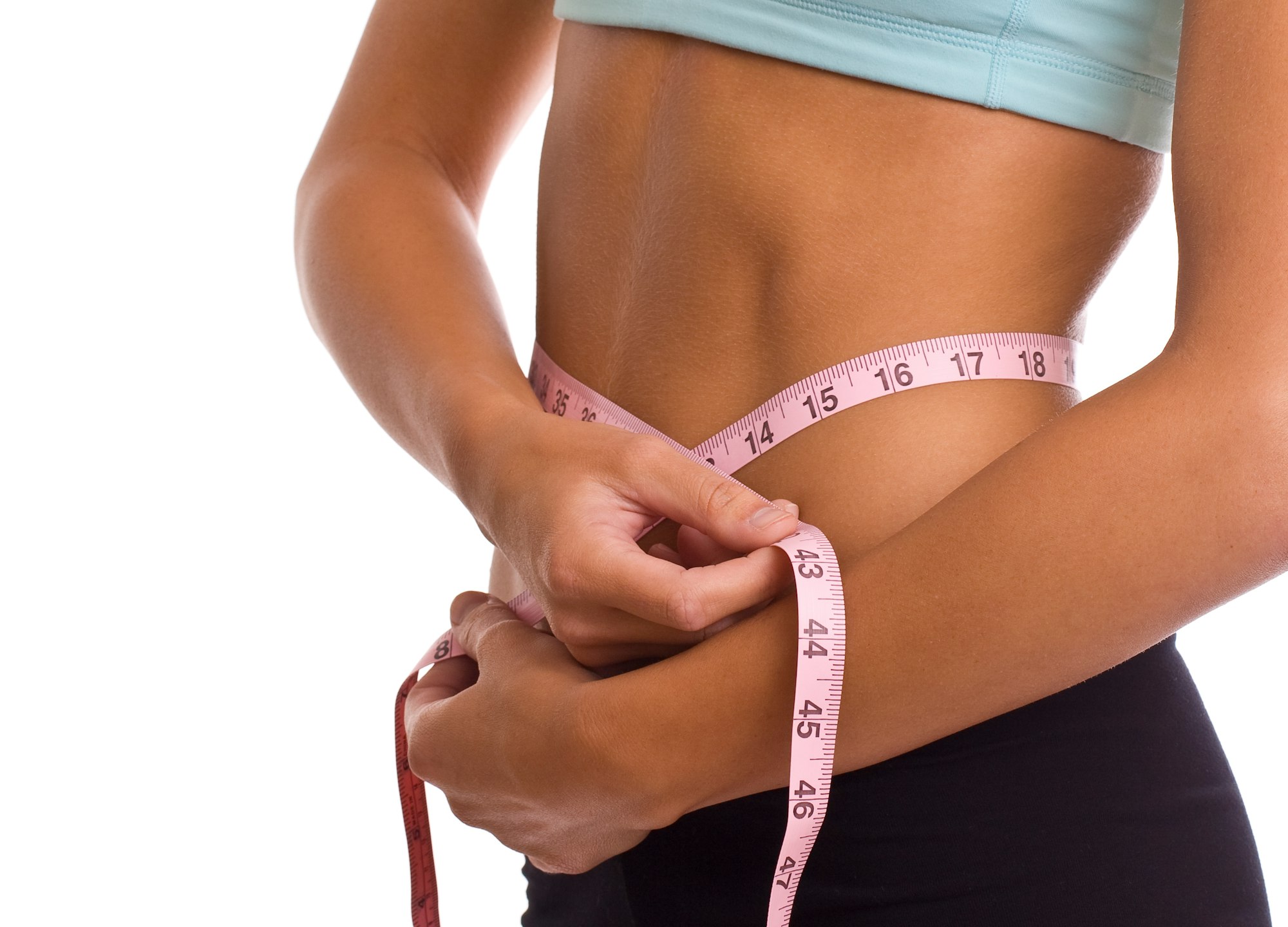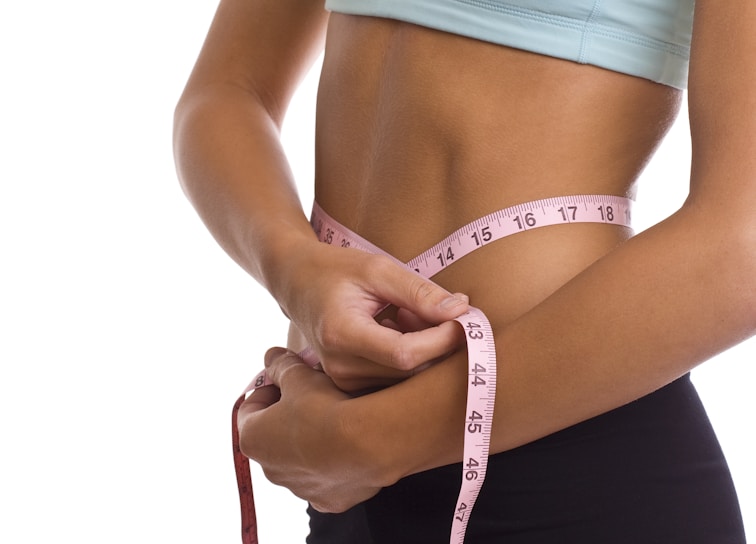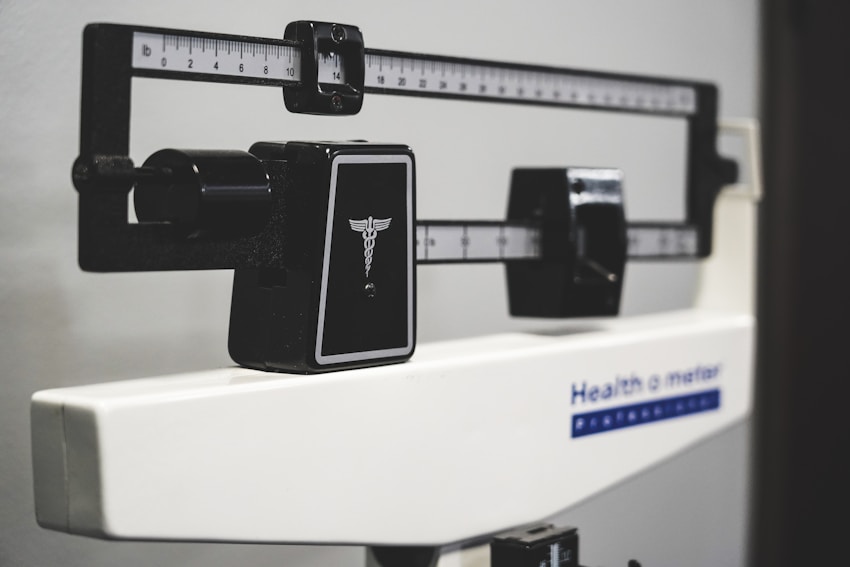Overview
One of the common weight loss goals is losing belly fat or abdominal fat.
According to the associate professor of Health, Behavior and Society at Johns Hopkins University and chair of the Department of Nutrition and Food Studies at George Mason University, Lawrence Cheskin, MD, losing belly fat is a worthy goal as it is the most dangerous location to store fat.
Research suggests that abdominal fat has strong links with diseases like heart disease and type 2 diabetes. Thus, losing this fat is beneficial for your health and well-being.
By measuring the circumference around your waist using a tape measure, you can measure your abdominal fat. Measures beyond 35 inches (88cm) in women and 40 inches (102 cm) in men are called abdominal obesity.

There are several weight loss strategies that specifically target the belly area more than other areas of the body. Here are 12 science-based belly fat loss techniques.
12 Science-Based Techniques on How to Lose Belly Fat Naturally
1. Lessen Your Sugar Intake
Eating a lot of foods with added sugar not only causes weight gain but also is bad for your health—it harms the metabolic health of an individual uniquely.
There are several studies indicating that excess sugar results in fat building up around your liver and abdomen.
Sugar contains half fructose and half glucose. Eating a lot of added sugar overloads the liver with fructose, forcing it to turn into fat—some believed this is how sugar negatively affects the body. The increase of liver fat and abdominal fat leads to insulin resistance and other metabolic problems.
Since the brain cannot register liquid calories the same way as it can with solid calories, drinking sugar-sweetened beverages is worse in this regard as it has more total calories.
As observed in one of the studies, with each additional daily serving of sugar-sweetened beverages, children are 60% more likely to develop obesity.
Consider minimizing your sugar intake and completely eliminate sugary drinks like sugary sodas, fruit juices, sugar-sweetened beverages, and various high sugar sports drinks.
To ensure that the products do not have refined sugar, reading the labels is of high importance. Even those that are commercially marketed as health foods may have significant amounts of sugar.
Although whole fruits are sweet, they are extremely healthy with plenty of fiber mitigating the negative effects of fructose.
2. Eat More Protein-Rich Foods
Several studies have observed that protein helps you to lose weight.
Based on research, it can boost metabolism by 80–100 calories every day, help you eat up to 441 fewer calories every day, and reduce cravings by 60%.
Thus, adding more protein to your diet is very effective for weight loss. However, protein is effective not only for weight loss but also for preventing weight regain.
Protein is particularly effective in abdominal fat loss. In fact, a study shows that people eating more protein had much less abdominal fat.
Another study also demonstrated protein being linked to a significantly reduced chance of abdominal fat gain in women over 5 years. It also linked fruits and vegetables to reduced fat, while oils and refined carbs to more abdominal fat.
The best sources of protein for your diet include fish, legume, meat, nuts, whole eggs, and dairy products.
If you’re following a vegan diet, you can have protein-rich vegetables, potatoes, beans with rice, almonds, and peanuts, etc.
Struggling with getting enough protein in your diet? Not a problem. Plenty of quality protein supplements, such as whey protein, and other protein powder options are available online. It is also safe and a convenient way to boost your protein intake.
3. Lessen Your Carb Intake
Another very effective way in losing fat is eating fewer carbohydrates, and several studies have supported this claim.
As people cut carbs in their diet, their appetite decreases, causing them to lose weight.
There are already a number of randomized controlled studies that demonstrated low carb diets to sometimes lead to 2–3 times more weight loss than low fat diets. Additionally, it also results in quick water weight reductions in just a day or two.
Studies have shown that low carb eating particularly reduces fat around the organs and liver and in the abdomen.
If your protein intake is high, just avoiding the refined carbs such as white bread, candy, and sugar, will suffice.
For quicker weight loss results, some people reduce their consumption of carbs to 50 grams every day, putting their body into ketosis where the body starts to burn fats as its main fuel and the appetite is reduced.
Aside from weight loss, low carb diets also significantly improve health in people who have type 2 diabetics.
4. Eat Fiber-Rich Foods
Depending on the type of fiber, eating fiber-rich foods, including cereals, legumes, fruits, and vegetables, helps you lose weight.
Viscous and soluble fibers mostly affect your weight. They bind water and form a thick gel that “sits” in your gut, which slows the food movement through the digestive system as well as the digestion and absorption of nutrients. That said, an individual may have a reduced appetite and prolonged feeling of fullness.
A review study has linked an additional 14 grams of fiber each day to a 4.5-pound (2 kg) weight loss and 10% decrease in calorie intake in just 4 months.
A 5-year study also linked eating a 10-gram soluble fiber every day to a 3.7% reduction of the abdominal fat.
This simply means that soluble fiber is effective in reducing harmful belly fat.
Struggling with having enough fiber in your diet? Don’t worry. You can also try one of the most viscous dietary fiber supplements like glucomannan to help you lose weight.
However, make sure to talk to your healthcare provider before including any supplement to your dietary regimen.
5. Regular Exercise
One of the best things you can do to increase your chances of healthy living is exercise.
One of the amazing health benefits of exercise is the reduction of abdominal fat. But it does not happen in just a day of exercising. It takes patience and hard work for you to see the end result.
Cardiovascular exercise and weight training are known to reduce fat across the body. Aerobic exercise, such as running, walking, and swimming, also reduces abdominal fat.
Another study demonstrated that exercise is particularly important in maintaining your weight as it can completely prevent people from regaining abdominal fat after weight loss.
Other than the above mentioned benefits of exercise, it also results in lower blood sugar levels, reduced inflammation, and improvements in other metabolic problems associated with excess abdominal fat.
6. Take a Walk Every Day
If you’re struggling to establish an exercise routine, walking is a pretty good starting point for some people.
The Journal of Exercise Nutrition and Biochemistry published a small study showing that obese women who are consistent with their 50- to 70-minute walking program for three days every week in 12 weeks significantly reduced their visceral fat compared with a sedentary control group.
7. Track Your Food Intake
Tracking your food intake is very important if you are aiming to lose weight. It’s so easy to underestimate or overestimate your food intake without keeping track, but it does not mean you have to measure and weigh everything you eat.
It helps you realize the most important areas of change once you start tracking your food intake every now and then for a few days in a row.
To achieve your goals, you can also start planning ahead your food intake, such as cutting down unhealthy carbs in your diet or boosting your protein intake to 25–30% of calories.
8. Adjust Your Behaviors
Your behavior is a big part of weight loss. For example, you may lose track of how much and what you’re eating or drinking when you’re out a happy hour with friends.
Thus, adjusting your behavior and becoming more aware of what you’re eating and drinking is important.
9. Embrace Healthy Fats
While you are trying to lose fat, adding healthy fats in your diet (in the form of polyunsaturated and monounsaturated fats) can make you feel more satisfied with your meals. The national media spokesperson for the Academy of Nutrition and Dietetics, Yasi Ansari, MS, RD, CSSD, recommended healthy fat sources like avocados, eggs, fatty fish, nuts, and olive oil to be added to your diet.

Moderate consumption of those fat sources also have a variety of health benefits.
10. Limit Your Stress
Stress can have adverse effects in every part of your body. Some people use food as a substitute for dealing with stress, making them eat more.
It’s true that for some people, eating is an easier thing to do as it does not take a whole lot of effort as compared with actually facing the stress head-on.
However, stress-eating only results in one thing: increasing belly fat. If you find yourself stress-eating, pause for a moment and think of a better solution for your stress.
11. Get Quality Sleep
Sleep is a huge factor in terms of weight loss success—whether you sleep too much or too little.
A review and meta-analysis (2017) in the UK found that people with a 5.5-hour sleep or less every night ate extra 385 calories the next day as compared with those who had a 7- to 12-hour sleep. And worse, they preferred eating fatty foods with empty calories such as chips.
12. Drink Less Alcohol
Alcohol is said to prevent weight loss in several ways, but drinking way beyond moderate amounts of alcohol causes calories to add up quickly.
Conclusion
Abdominal fat is linked to an increased risk of several diseases. Thus, this article detailed 12 science-based techniques on how to lose belly fat naturally at home: lessen your sugar intake, eat more protein-rich foods, lessen your carb intake, eat fiber-rich foods, get regular exercise, take a walk every day, track your food intake, adjust your behaviors, embrace healthy fats, limit your stress, get quality sleep, and drink less alcohol.
Most people experience reduction of abdominal fat by taking on key lifestyle changes, such as eating foods that burn belly fat and exercising regularly.
To successfully lose belly fat, it is better to have a belly fat diet plan and stick to it.
READY TO GIVE KETO A TRY? WAIT!
You are not being told about many of the most important keto breakthroughs being discovered by leading doctors and medical research centers.
There’s no big conspiracy.
It’s just that these breakthroughs usually don’t get much publicity.
That’s because they’re reported in medical journals intended for doctors such as The New England Journal of Medicine… The Journal of the American Medical Association… Lancet… The American Heart Journal… among many others.
Or; in some cases, these discoveries are made in prestigious health centers in other parts of the world, and receive little or no coverage in the US media.
In still other cases, highly respected medical doctors uncover these breakthroughs in clinical studies in their own private practices. They report their findings to professional medical societies, but these discoveries often escape the notice of the mass media.
All of this leaves gaping holes in the health information you should be getting. Yet these “under-reported” discoveries can be of tremendous importance to you and those you love.
That’s why we created My Health G.O.A.T. (Greatest Of All Time).Until My Health G.O.A.T. came along, if you wanted to try to keep on top of new keto developments and scientific keto breakthroughs, you would have to subscribe to a shopping cart full of professional medical journals and newsletters.
And you’d have to spend a king’s ransom for the privilege!
You might also have to get a medical degree to understand many of the articles. But now that’s changed, thanks to My Health G.O.A.T.
Here are our top 12 articles you can read right now that will help give you a shortcut to success during your keto journey to weight loss:













